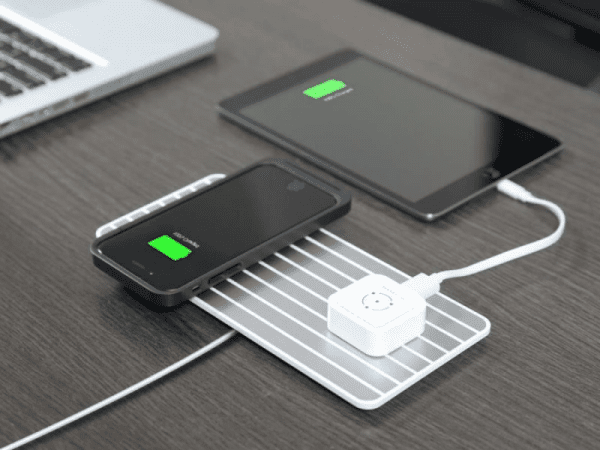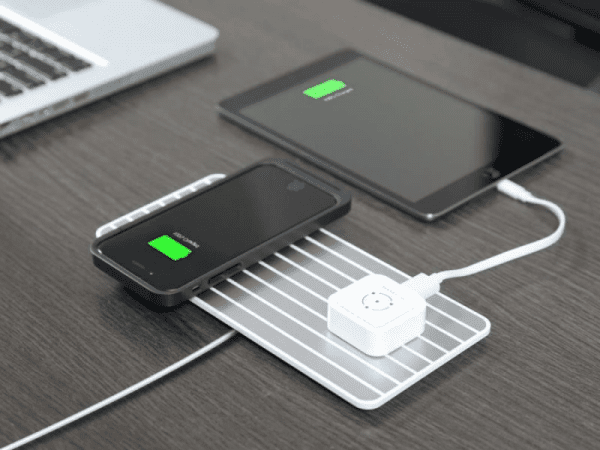In a world where convenience and efficiency are constantly sought after, the debate between wireless and wired charging has become increasingly prevalent. Both options offer unique benefits and drawbacks, leaving consumers to ponder which is truly superior. Let’s delve into the world of charging technology and discover which reigns supreme – wireless or wired?

The Convenience Factor: Exploring the Benefits of Wireless Charging
When it comes to charging your devices, the convenience factor plays a crucial role in deciding between wireless and wired charging options. While both methods have their own set of advantages and disadvantages, the ease of use offered by wireless charging cannot be overlooked.
One of the key benefits of wireless charging is the elimination of tangled cords and cables. With a wireless charging pad, you simply place your device on the pad and let it charge without the hassle of plugging and unplugging cords. This not only reduces clutter but also makes it easier to charge your devices on the go.
Moreover, wireless charging allows for greater flexibility in positioning your device while charging. Unlike wired charging, which requires a specific orientation for the cord to connect properly, wireless charging pads allow you to place your device in any position on the pad, as long as it is within range. This added convenience makes wireless charging a preferred option for many users.
Additionally, wireless charging is also more durable as it eliminates wear and tear on charging ports caused by frequent plugging and unplugging. This can help prolong the lifespan of your devices and reduce the need for costly repairs in the long run. Overall, while both wireless and wired charging have their own merits, the convenience factor of wireless charging makes it a compelling choice for many users.
Environmental Impact: Comparing the Energy Efficiency of Wireless and Wired Charging
When it comes to charging our electronic devices, we often face the dilemma of choosing between wireless and wired charging options. One factor to consider in this decision is the environmental impact of each method, particularly in terms of energy efficiency. Let’s explore the differences between wireless and wired charging to determine which option is better for the environment.
Wireless Charging:
- Convenient and eliminates the need for cords
- May consume more energy due to energy loss during transmission
- Can lead to more standby power consumption
Wired Charging:
- Direct and efficient transfer of energy
- Less energy loss compared to wireless charging
- Minimal standby power consumption
Overall, while wireless charging offers convenience, it may come at the cost of higher energy consumption and environmental impact compared to wired charging. When considering the energy efficiency of both options, wired charging emerges as the better choice for those looking to reduce their carbon footprint and minimize energy waste.
Charging Speed and Reliability: Delving into Performance Differences
In the world of charging technology, there has always been a debate between wireless and wired charging. Both methods have their unique advantages and disadvantages when it comes to charging speed and reliability.
One of the key factors to consider when comparing wireless charging to wired charging is the difference in charging speeds. **Wired Charging** is known for its faster charging times compared to **Wireless Charging**. This is because wired charging directly connects the device to a power source, allowing for a more efficient transfer of power. On the other hand, wireless charging relies on electromagnetic induction to transfer power, which can result in slower charging speeds.
Another aspect to consider is the reliability of each charging method. **Wired Charging** is generally considered to be more reliable than **Wireless Charging**. This is because wired connections are less prone to interference and signal loss, leading to a more stable and consistent charging experience.
Making the Choice: Factors to Consider When Deciding Between Wireless and Wired Charging
When deciding between wireless and wired charging options, there are several factors to consider to determine which is better suited for your needs.
One key factor to consider is convenience. Wireless charging offers the convenience of simply placing your device on a charging pad without having to fiddle with cords or connectors. This can be especially handy for those on the go or those who frequently need to charge multiple devices at once. However, wired charging tends to be faster and more reliable, as the direct connection allows for a more efficient transfer of power.
Another factor to consider is compatibility. While most newer devices are equipped with wireless charging capabilities, not all devices are compatible with this technology. Additionally, wireless charging pads may not be as readily available in public places as traditional charging outlets. It’s important to weigh the convenience of wireless charging against the potential limitations of compatibility.
Cost is also a significant factor to consider. Wireless charging pads can be more expensive upfront, but the convenience they offer may outweigh the cost for some users. On the other hand, traditional charging cables are typically more affordable and easy to replace if needed. Consider your budget and how much you are willing to invest in a charging solution before making your decision.
In the end, the choice between wireless and wired charging ultimately depends on your individual needs and preferences. Consider these factors carefully to determine which option is the best fit for you. In conclusion, the debate between wireless and wired charging ultimately comes down to personal preference and convenience. While wireless charging offers a clutter-free solution and greater flexibility, wired charging still reigns supreme in terms of speed and efficiency. Whichever option you choose, make sure it fits your needs and lifestyle. After all, the most important thing is keeping your devices powered up and ready to go whenever you need them. So, whether you prefer the freedom of wireless charging or the reliability of wired charging, the choice is yours. Whichever you choose, remember to stay charged and stay connected.
